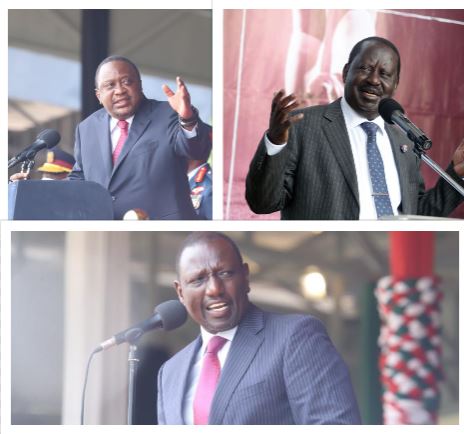×
The Standard e-Paper
Stay Informed, Even Offline

President Uhuru Kenyatta, ODM leader Raila Odinga and Deputy President William Ruto.
As President Uhuru Kenyatta and ODM leader Raila Odinga received the much-anticipated report of the Building Bridges Initiative at Kisii State Lodge, the duo told off the political leaders who have been criticizing it.